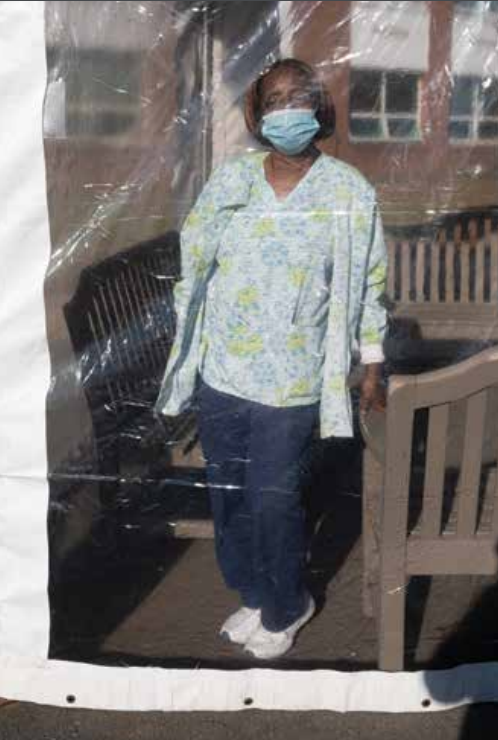Two New NJ Laws Mark Historic Gains for Nursing Home Workers & Residents
January 12, 2021
Legislation establishes minimum staffing ratios and policies to prevent social isolation among residents.

“I cried. I was so happy,” said Margaret Boyce, a CNA at JFK Hartwyck at Edison Estates. “What a glorious day! That [staffing] bill was my baby.”
The new staffing law (S2712) includes specific minimum direct care staff-to-resident ratios in New Jersey long-term care facilities. Under the legislation, minimum direct care staff-to-resident ratios are as follows: one CNA to every eight residents for the day shift; one direct care staff member (RN, LPN, or CNA working in the capacity of a CNA) to every 10 residents for the evening shift; and one direct care staff member (RN, LPN, or CNA working in the capacity of a CNA) to every 14 residents for the night shift. The law also establishes the Special Task Force on Direct Care Workforce Retention and Recruitment.
“Sadly, too many nursing homes are run by companies more interested in making money than protecting patients,” said Governor Murphy. “These long-sought reforms will help bring accountability to the industry and protect residents, staff, and family members with a loved one living in a long-term care facility. I am proud to have worked with our partners in organized labor, health care advocates, and legislative sponsors to finally implement safe staffing ratios in our nursing homes, as well as other long overdue reforms.”
The second bill signed by Gov. Murphy (S2785) mandates, as a condition of licensure, policies that prevent social isolation of residents and addresses issues experienced by residents and their families as a result of visitation limitations during COVID-19. (The pandemic only exacerbated tremendous strains already experienced by many longterm care residents and their families.)
The bill also promotes virtual visitation and resident recreational activities during periods where in-person engagement is limited/prohibited.
“New Jersey has enacted one of the most meaningful pieces of nursing home legislation our state has seen in decades,” said 1199SEIU EVP Milly Silva. “This law will fundamentally improve standards of quality care in nursing homes by ensuring that facilities hire sufficient frontline staff to meet the basic needs of residents.
We commend Gov. Murphy and our legislative leadership for taking this step establishing New Jersey as a national model for compassionate staffing levels in nursing homes.”
“Now we will have enough time to give our residents the care they deserve,” said Margaret Boyce.
“Seeing Gov. Murphy sign that bill was bittersweet, because there are still things to be done; I know how short staffing has affected our residents over the years. This victory shows that we in 1199 can change things if we put our minds to it.”
1199 Magazine | November & December 2020

